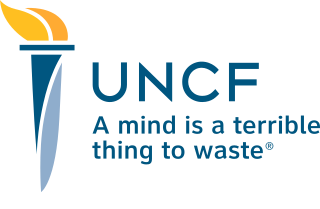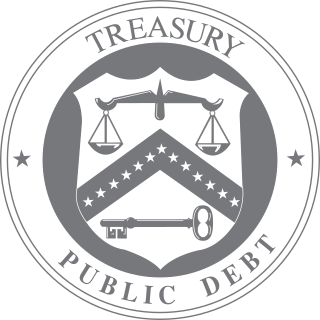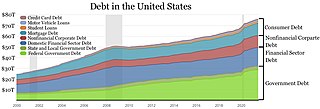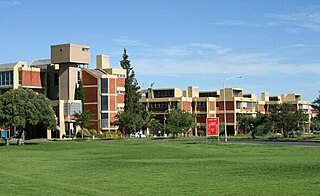Related Research Articles

The International Finance Corporation (IFC) is an international financial institution that offers investment, advisory, and asset-management services to encourage private-sector development in less developed countries. The IFC is a member of the World Bank Group and is headquartered in Washington, D.C. in the United States.

TheUnited Negro College Fund, also known as UNCF, is an American philanthropic organization that funds scholarships for underrepresented students and general operating support for 37 private Historically Black Colleges and Universities (HBCUs). In 1943, Dr. Frederick D. Patterson wrote to The Pittsburgh Courier proposing the creation of an alliance of Black colleges that would raise money for their mutual benefit. UNCF was founded on April 25, 1944, under the leadership of Dr. Patterson, Dr. Mary McLeod Bethune, and others on the belief that there is strength in numbers—that HBCUs ought to make a joint effort to appeal for funds—as well as the belief that education was crucial to Black economic and social mobility. At the start, UNCF served 27 member colleges and universities, totaling 12,000 students. Its first campaign received the support of many prominent Americans including President Franklin D. Roosevelt and John D. Rockefeller, II. During its first annual campaign, the collective effort raised $765,000, equivalent to $10 million today, which is three times what its member institutions had raised separately the previous year.

SLM Corporation is a publicly traded U.S. corporation that provides consumer banking. Its nature has changed dramatically since it was set up in the early 1970s; initially a government entity that serviced federal education loans, it then became private and began offering private student loans.

The Thrift Savings Plan (TSP) is a defined contribution plan for United States civil service employees and retirees as well as for members of the uniformed services. As of December 31, 2021, TSP has approximately 6.5 million participants, and more than $827.2 billion in assets under management; it is the largest defined contribution plan in the world. The TSP is administered by the Federal Retirement Thrift Investment Board, an independent agency.

A grant is a fund given by a person or organization, often a public body, charitable foundation, a specialised grant-making institution, or in some cases a business with a corporate social responsibility mission, to an individual or another entity, usually, a non-profit organisation, sometimes a business or a local government body, for a specific purpose linked to public benefit. Unlike loans, grants are not intended to be paid back. Examples include student grants, research grants, the Sovereign Grant paid by the UK Treasury to the monarch, and some European Regional Development Fund payments in the European Union.

The Bureau of the Public Debt was an agency within the Fiscal Service of the United States Department of the Treasury. United States Secretary of the Treasury Timothy Geithner issued a directive that the Bureau be combined with the Financial Management Service to form the Bureau of the Fiscal Service in 2012.
Strada Education Network is a non-profit corporation which assists students into post-secondary education by providing financial support and other help. USA Funds links colleges, universities, proprietary schools, private lenders, students and parents to promote financial access to higher learning. The organization is formerly known as United Student Aid Funds or USA Funds. Strada's headquarters is in Indianapolis, Indiana.
A Pell Grant is a subsidy the U.S. federal government provides for students who need it to pay for college. Federal Pell Grants are limited to students with exceptional financial need, who have not earned their first bachelor's degree, or who are enrolled in certain post-baccalaureate programs, through participating institutions. Originally known as a Basic Educational Opportunity Grant, it was renamed in 1980 in honor of Democratic U.S. Senator Claiborne Pell of Rhode Island. A Pell Grant is generally considered the foundation of a student's financial aid package, to which other forms of aid are added. The Federal Pell Grant program is administered by the United States Department of Education, which determines the student's financial need and through it, the student's Pell eligibility. The U.S. Department of Education uses a standard formula to evaluate financial information reported on the Free Application for Federal Student Aid (FAFSA) for determining the student's Expected Family Contribution (EFC).
The Federal Family Education Loan (FFEL) Program was a system of private student loans which were subsidized and guaranteed by the United States federal government. The program issued loans from 1965 until it was ended in 2010. Similar loans are now provided under the Federal Direct Student Loan Program, which are federal loans issued directly by the United States Department of Education.

In the United States, student loans are a form of financial aid intended to help students access higher education. In 2018, 70 percent of higher education graduates had used loans to cover some or all of their expenses. With notable exceptions, student loans must be repaid, in contrast to other forms of financial aid such as scholarships, which are not repaid, and grants, which rarely have to be repaid. Student loans may be discharged through bankruptcy, but this is difficult. Research shows that access to student loans increases credit-constrained students' degree completion, later-life earnings, and student loan repayment while having no impact on overall debt.
The Troubled Asset Relief Program (TARP) is a program of the United States government to purchase toxic assets and equity from financial institutions to strengthen its financial sector that was passed by Congress and signed into law by President George W. Bush. It was a component of the government's measures in 2009 to address the subprime mortgage crisis.
United States policy responses to the late-2000s recession explores legislation, banking industry and market volatility within retirement plans.
SoFi Technologies, Inc. is an American online personal finance company and online bank. Based in San Francisco, SoFi provides financial products including student loan refinancing, mortgages, personal loans, credit card, investing, and banking through both mobile app and desktop interfaces.
Earnest is a technology-enabled fintech lender headquartered in San Francisco, California that offers education financing products, including student loan refinancing and private student loans. The company evaluates a person’s full education, employment, and financial profile, in addition to their credit score in order to obtain a complete financial profile of each applicant. This type of credit is referred to as "merit-based lending."
For-profit higher education in the United States refers to the commercialization and privatization of American higher education institutions. For-profit colleges have been the most recognizable for-profit institutions, and more recently with online program managers, but commercialization has been a part of US higher education for centuries. Privatization of public institutions has been increasing since at least the 1980s.
Byju's is an Indian multinational educational technology company, headquartered in Bangalore. It was founded in 2011 by Byju Raveendran and Divya Gokulnath. As of January 2024, Byju's was valued at $1 billion, a sharp fall from its peak of $22 billion in 2022. As of April 2023, the company claims to have over 150 million registered students.

University of Namibia Student Representative Council was founded on 20 February 1992, and is recognised as the legal representative body for the students of the University of Namibia by the University of Namibia Act 18 of 1992. It is responsible for representing the interests of the students to the management of the University and to local and national government. It consists of representatives from all twelve campuses across Namibia.
Dimbulukeni 'Dee' Nauyoma is a Namibian youth activist who along with Job Amupanda and George Kambala co-founded a radical youth movement known as the Affirmative Repositioning in November 2014. Prior to the formation of the Affirmative Repositioning, he served in the SWAPO Youth League until 2014. From 2015 to 2018, he served as Secretary General of the Namibia National Students Organisation.
Inna Koviao Hengari is a Namibian politician, student leader and youth activist. A member of the Popular Democratic Movement, she became a member of the National Assembly on 20 March 2020, the youngest since McHenry Venaani in 2004. Previously she served as Vice President of the UNAM SRC and the Students Union of Namibia.

The Coronavirus Aid, Relief, and Economic Security Act, also known as the CARES Act, is a $2.2 trillion economic stimulus bill passed by the 116th U.S. Congress and signed into law by President Donald Trump on March 27, 2020, in response to the economic fallout of the COVID-19 pandemic in the United States. The spending primarily includes $300 billion in one-time cash payments to individual people who submit a tax return in America, $260 billion in increased unemployment benefits, the creation of the Paycheck Protection Program that provides forgivable loans to small businesses with an initial $350 billion in funding, $500 billion in loans for corporations, and $339.8 billion to state and local governments.
References
- ↑ https://www.namibian.com.na/182026/archive-read/NSFAF-withdraws-funding-for-medical-students | NSFAF withdraws funding for medical students - The Namibian
- ↑ https://www.namibian.com.na/151870/archive-read/NSFAF-CEO-speaks-out | NSFAF CEO speaks out - The Namibian
- ↑ https://allafrica.com/stories/201809200213.html | Namibia: NSFAF Honours Payment for Boarding Students - allAfrica.com
- ↑ https://www.neweralive.na/amp/nsfaf-receives-n670-million-from-treasury | NSFAF receives N$670 million from treasury - New Era Live
- ↑ https://www.namibian.com.na/150262/archive-read/NSFAF-cannot-account-for-billions |NSFAF cannot account for billions - The Namibian